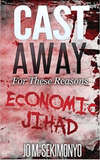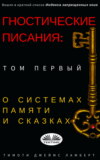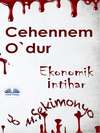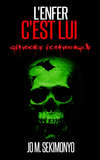Читать книгу: «Cast Away : For These Reasons»
Copyright © 2014 Jo M. Sekimonyo
All rights reserved. No part of this publication may be reproduced, distributed, or transmitted in any form or by any means, including photocopying, recording, or other electronic or mechanical methods, without the prior written permission of the publisher, except in the case of brief quotations embodied in critical reviews and certain other noncommercial uses permitted under the U.S Copyright Act of 1976. For permission requests, write or email to the publisher, addressed âAttention: Permissions Coordinator,â at the address below:
Email: venusflytrappress@gmail.com
or visit: www.ethosism.com
Venus flytrap Press, LLC
P.O. Box 390780
Cambridge, MA 02139
Venus Flytrap Press can bring the author to your live event.
Editing by Tara Casimir
All quotations remain the intellectual property of their respective originators. All use of quotations is done under the fair use copyright principal.
Includes bibliographical references and index.
1. Ethosism 2. Political Economy 3. Capitalism Barbarism
4. Abstinence Theory 5. Common Sense I. Title
Contents
Letter to Mama Vincent
Preface
Acknowledgments
Foreword
I. Social
Interlude I
1. Introduction
2. Kamikaze
3. I see poor people
4. Gangnam Style
II. Politics
Interlude II
5. False Prophesies
6. Corruptibilis
7. Mohamed Bouazizi
III. Economics
Interlude III
8. Say Whaaat?!!
IV. Paradigm Shift
Interlude IV
9. D.R.I.P
10. Diamonds are a womanâs BFF
11. Hop-o'-My-Thumb
V. The New Testament
Interlude V
12. Current and rude state of society
13. Abracadabra
Sky High
Full Circle
And finally
Endnotes
Additional Readings
"If you are going to tell people the truth, you'd better make them laugh. Otherwise, they'll kill you."
â Human
Letter to Mama Vincent
"There is a common tendency to ignore the poor or to develop some rationalization for the good fortune of the fortunate."â John Kenneth Galbraith
Dear Mama Vincent,
If this letter comes as a surprise to you, then you have no idea of the profound impression that our encounter with you has had in our lives since that day. Putting faces to the global malaise has kept my wife and me from sailing conscience-free around the ocean of the abstract. I sincerely commend you for taking full responsibility for the bad decisions you have made in your life, but I would be foolish to believe that your slip-ups are all there is to the story. In reality, from your birth, the odds were already stacked against you, and I know how this part of the world is merciless to single illiterate mothers. Vincent could have easily been me if I had landed in my mother's hands.
Dear, under your beautiful smile and joyful laugh, I saw an excruciating pain. You still have your life ahead of you. You shouldnât be a nameless figure, giving up on your big dreams and aspirations just yet. Then again, holding Vincent in my arms, under roaming eyes of law enforcement agents passing by, I for a moment shared your agony and despair.
It is touching the way you come to describe your son Vincent as your reason to live. Most of the young people your age uses such poignant statements to refer to the cute boy or girl they come to believe are their soul mates, the same person they will eventually dump for some blasé reason with little if any remorse. Even worse, it is revolting to overhear grownups reduce life's meaning into the ephemeral passing of emotions. Still, I cannot ignore that your reality in Kenya is far different than people in my current world.
You confessed to us that, at times, you feel hopeless, a pariah creeping through the streets in the vibrant city of Nairobi, which has decided to criminalize poverty. It is not a surprise that Nairobi's zero tolerance on the deprived has created the largest landfill of the poor in the whole Eastern region of Africa, the slum of Kibera. Yet, it breaks my heart to say there are other Kiberas and worse around this suffocating blue planet, which is not comforting to you either. From my travels, I have seen countless young mothers with their children panhandling all over the Democratic Republic of Congo and on every corner in Addis Ababa Ethiopia, and men in faded uniforms begging for coins on main streets in crumbling cities across the United States of America.
I have been on an investigative journey dissecting the hardships endured by Brazilians living in the City of God, the inhabitants of Cite' Jalousie in Port-au-Prince, Haiti before and after the devastating earthquake, the Romanians in Blagoevgrad, Bulgaria, Russians clustered in the Ghetto of Tver City, Chased in Khayelitsha, South Africa, and the poor in Kowloon Walled City, Hong Kong, China. I have been surprised by the residentsâ resilience of crime and poverty infected cities such as Detroit, U.S. and San Salvador, capital of El Salvador. And it is sad to say that around the world there are billions of people just like you who will go their whole lives experiencing poverty, famine, homelessness, and abuse that will most likely occur in the hands of law enforcement agents.
Tara and I are well aware that the few Kenyan shilling bills we gave you equated to scarce meals and shelter for only a couple of days. After what you and Vincent probably had to do to survive, is getting back on Nairobi's mean streets, at the mercy of other compassionate souls. We are deeply sorry that we couldn't rescue you and others from this nightmare.
After walking by, giving my spare change to people blinded and asphyxiated by misery, I asked myself repeatedly, what else can I do?! Stories about inequality have been told on and on. Nevertheless, I decided to stir the debate into a new path that could give Vincent and other innocent children like him a chance to a decent life. My mantra is that Vincent should have not just a roof over his head but a home, not just water but clean drinks, not just food but healthy meals, not just a classroom but quality education. And all these factors should eventually lead him to not just a job but at least a universal living recompense for his skills and abilities. Anything less would be regarded as humanityâs failure and continuing tragedy!!!
Sincerely,
Jo M. Sekimonyo

Preface
Maharishi's impersonators have pigeonholed Capitalism, Socialism, and Communism as economic contrivances. These pompous pranksters' exhaustive melodramatic economic tête-à -têtes have been nothing more than suckers' fodder. This book harks back to the real essence of Capitalism, Socialism, or Communism, an embodiment of a social, commerce and trade, and political creed.
Acknowledgments
"If you want to change the world, pick up your pen and write."â Martin Luther King Jr.
Tara and I met in Tampa Florida; she had embarked on a great career that requires long hours on her feet but provided the financial security that her parents, Haitian immigrants, have dreamed of. In contrast, I was a hippy lunatic idealist, which the old man found outlandish. Somehow, I was able to convince her to parachute out of her stable and bright quotidian life to join me on the dark side. What got into her head to gamble on me and graduate school prospects? As diabolic speculations gained traction, we relocated to the north-eastern part of United States; what a relief.
Our first snow day was interesting, to say the least. It was the first time Tara gave me the "serial killer look," holding a sharp knife, and didn't say a word for a minute. Bear in mind that even in my sleep, I would throw a tantrum denouncing the increasing gap between the "have a lot" and the "have squat" all over the globe. Little did I know, my lovely wife was fed up with my homilies and wailings of the global social, commerce and trade, and political malaise, and more-so of my plans to present to the world what I believe is the remedy. Sure, I jotted down notes on gazillions of papers that laid like dead leaves on our office floor but stopping short of mustering the energy and discipline to complete a manuscript. A family friend even suggested that I put my ideas into a book so that I can amass followers. Build a cult? A preposterous idea, at the time. As much as it pains me to admit it, Tara was right. I had talked the talk for years, it was about time that I walked the walk, or in this case, written the write.
Why is the title of this book not "Economics Codex Gigas?" Well, Nassau Senior beat me to writing the economic devil's bible. Economic Jihad? Your slothful mind could be rushing to an inevitable conclusion right now. Chill pills will be handy on this journey; this book excavates long-standing challenges that generations of indolent economists and their groupies have suppressed or pointed in the wrong direction for two centuries. It is neither a clandestine parody nor a callous demonstration of prowess, but a genuine and provocative dissection of our world and the economic discipline.
Other than my anger and anxiety, I have to thank people that happen to sit next to me in greyhound buses during my frequent exhausting commutes, and with whom I had some of the most memorable discussions of my existence. Among them, a head of a University who had really harsh words for the Nobel Prize economist, Milton Friedman, for coming from a humble Jewish family beginning in New York City and "turning into an asshole" (his words). To my special sauce of ingredients, friends, and foes who have been driven by the insatiable appetite of proving my ideas were crazy; you have helped me strengthen my arguments and conviction. I love you, ladies and gentlemen.
Most of all, I am more than thankful for my wife, my partner in crime, for her excessive but effective tactics instrumental for me to undertake the daunting task of writing this book.
Foreword
The relevance of heterodox economics is more than ever before threatened. Already, a number of heterodox economic programs have been disbanded. If the institutions that are immersed in this school of economic thought stay on the same track and donât adjust their goal from producing economists who aspire to become successful theoreticians, thinkers, to whom are going to become accomplished pragmatists, reasoning humans, their role in this global competitive academia will become obsolete. The end of heterodox economics might also be the best thing for the revival of institutionalism or even better, institutionsâ adoption and dissemination of Ethosism, a more lucid and relevant moral stream.
I
Interlude I
"Our deepest fear is not that we are inadequate. Our deepest fear is that we are powerful beyond measure. It is our light, not our darkness that most frightens us. We ask ourselves, who am I to be brilliant, gorgeous, talented, and fabulous? Actually, who are you not to be? You are a child of God. Your playing small does not serve the world. There is nothing enlightened about shrinking so that other people won't feel insecure around you. We are all meant to shine, as children do. We were born to make manifest the glory of God that is within us. It's not just in some of us; it's for everyone. And as we let our own light shine, we unconsciously give other people permission to do the same. As we are liberated from our own fear, our presence automatically liberates others."
This inspiring quote by Marianne Williamson is from her book A Return to Love: Reflections on the Principles of a Course in Miracles, Harper Collins, 1992. From Chapter 7, Section 3 (Pg. 190-191). Even though Nelson Mandela never uttered this quote in his 1994 inaugural speech, for my generation, it is forever attached to the man. If something has to be objectively said about his one term as the President of South Africa, his cowardly rainbow approach on dissolving apartheid had made him the white South African bourgeois champion. And, of course, if one simply tries to look at him within the context of a man who spent twenty-seven years in prison without begging his masters for a pardon or cracking the skull of another inmate, he, in essence, deserves to be held as one of the mythical figures of the power of conviction who exemplifies the strength of character required in the struggle against social, commerce and trade, and political inequality. What other better way to limp into the next phase of this expedition?
1
Introduction

"Art is an attempt to integrate evil."â Simone de Beauvoir
I do not listen to compact discs. I play old tunes on vinyl. Perusing through thrift stores in search of a Sam Cooke, a Wendo Kolosoy, a Thelonious Monk, an Eduardo Sanchez de Fuentes, a Jimmie Rodgers, a Notorious B.I.G, a Mikhail Glinka, a Mariam Makeba, a Nana Mouskouri, a Fela Kuti, a Claude Debussy, or a Sergei Sergeyevich Prokofiev is as soothing as yoga. I treasure authentic Peruvian folklore music beats and Mongolian musical instruments more than a pop artist funk or tarnished and unusual twisted spoons' exhibition. Any form of expression that ceases to be an experience and becomes an art form loses its glowing divinity. In the same spirit, this book is an experience, not an artistic acrobatic exercise meant for viewing to remind you that it exists.
I have been excommunicated from a long list of tea shops and bars on the bogus charge of being the or Ferdinand Lassalle embodiment. The general public wrongly ties together an economic status quo examination with anti-Capitalism bravura based on an acute paranoia of the Karl Marx book "Das Kapital." It is difficult to talk about socialism in any constructive way. If you don't believe me, try to turn the light on the ugliest Capitalism facets, and bam, you get ostracized from the society as a Communist. Prompting a conversation on a new robust alternative to the free-market will only get you frightened looks from self-proclaimed Marx reincarnations. The terms, thoughts, precepts, concepts, practices and personalities have all been vilified on the one hand, or lionized on the other, that most people have an instant disdain for anything you might say once one of the lexicons of its vocabulary comes out of your mouth.
What can you say about the boring cock-fights between Capitalism deities of our time? You should be as disgusted as I am of these clown shows that chip away the substance of economic disparity dialogues. My rants can turn into a tsunami, but there are events in our lives, which, though small, prove to be very significant.
In transit at the Kenyatta International Airport in Nairobi, Kenya, waiting for my flight back to the United States, I was once asked what I wanted to be when I grow up. The man was sitting right across my table. He could have been in his late sixties. I could tell by his features and accent that he was from Rwanda, a nation that watchdog organizations reports have pointed at being the mastermind of my home country's political and social horrors. You can understand my rage after I was briefed on how Rwanda provided financial and military support to sadistic bandit groups, and, in return, Rwanda directly plundered Congolese natural resources and indirectly became a hub for mineral trade1.
On that day, I was haunted by one question; how many blows and lives lost would the Democratic Republic of Congo have to endure before the world says enough? With an angry tone, my reply to his question was audacious and straightforward: "I want to become a leader in the Democratic Republic of Congo." While struggling to suppress his mirth, he asked what my solutions would be for the DRC.
After all, my home country has been through more than half a century of economic and social chaos. At first, I lightheartedly laid down my ideas. He pulled his glasses back and asked me to elaborate more on my plan. Needleless to say, the more I talked, the more naïve and dumb I sounded. In the end, I was not able to articulate my vision for the reason that I never seriously thought about it in detail. My entire scheme could not stand any scrutiny. The casual conversation turned into a humiliating and humbling experience.
This book emanates from the economic disciplines hijacked by escape artists and mathematicians, for more than two centuries. For all the wrong reasons, economists have blasted into a million small pieces the Holy Grails of the classical Labor Theory of Value and stripped away the humanism and the real world from theoretical foundations. Then they took the pain of stitching some of the pieces back, using pathetic assumptions as Band-Aids.
There is some truth in the quarantined Marxist Fred Moseley's charge that the economic academia system has been built to reward folks who stick with the mainstream. This good man is the Shoichi Yokoi of economics, deprived of fame and fortune, hiding in the jungles of South Hadley in Massachusetts. He firmly believed his former comrades would one day return for him, and together they would launch a final assault on Capitalism. Alas, merely castigating orthodoxy for the ineptness of their theory can neither restore the classical vision of an efficient market nor get us to the Promised Land.
I kick-started this book on a personal note with a letter to a young teenage single mother who is called Mama Vincent. She is a panhandler that my wife and I met in downtown Nairobi, Kenya. At one point, I had to hold young Vincent in my arms to keep law enforcement agents away. My tourist eminence in Kenya shielded Vincent and his mother from police harassment. The city of Nairobi has passed an ordinance criminalizing pandhandling, or shall I say, poverty. I asked then and do so again, "What then is the poor to do?"
Excess in government is spent on the elite in government, and their favored patrons, not on waging a war against the root causes that perpetuate endemic poverty. This modern era apartheid doesn't call any attention because the oppressed and oppressors have the same skin color. Many more cities are taking the same insane approach and have been getting away with it as long as the line drawn doesn't desecrate the burial of race or ethnic disputes.
In my childhood, I was ingrained with the notion that social, commerce and trade, and political disparity was dictated by law of nature; somebody had to be poor to be a servant of the rich! In the mid-90s, wealthy Congolese sought refuge to the west from the civil war. I stand as a witness to how, in a blink of an eye, most of these families lost their accustomed lifestyle of luxury. After living for close to two decades in exile, even the most powerful generals and the former President's inner circle gradually succumbed to the crippling misery. Not surprisingly, a number of the barons and crusaders of the former regime have crawled back home and are vigorously active in the new parasite system. My wise South African friend referenced a law of nature to explain this cycle: "Once a snake, always a snake!"
The personal testimony is to show the damning universal truth that people, as well as nations, are more concerned about themselves until their luck changes. In the dot com collapse of 1995-2000, and the Great Recession beginning in 2008 we saw many Americans were shaken out of their dream of a house with a picket fence. Ordinary hard-working Americans saw their pensions completely wiped out by a few greedy capitalist insiders. In the latter event housing prices fell by over 31%, greater than in the Great Depression of the 1930s. Non-farm employment was higher than in the Great Depression, and lingered longer. The capitalistsâ stimulative move, The Gramm-Rudman Act, actually precipitated the catastrophe by allowing trading in speculative derivatives that were mortgage backed securities entirely unsupported and by default, worthless2.
Another caustic example is the small group of the Russian oligarchs who have since fallen out of Vladimir Putin's favor, who cannot help but preach justice and equality from their golden exile in London. What is there to say about European countries juggling with mind-blowing debt higher than their worth (Gross Domestic Product)? Add to this picture Brazil, Russia, India, and China, the BRIC countries who are steam-rolling their economic growth at Mother Nature's peril3. Added to this gumbo the Arab Facebook generation, who are no longer content with the tiny slice of their national wealth while a minority splurges with the rest, are attempting to shift cards.
These recent bubbling volcanoes should awaken our sense that preemptive measures should be sought to break the status quo. In the twenty-first century, the sluggish economists' speech "We will be fine as long as we stay on the current course and tweak the old Capitalism wheel a little bit more," has long lost its potency and relevance. It is more than ever imperative to initiate a cultural revolution and to develop a real alternative to the prevailing brutal and primitive social, commerce and trade, and political system, which is Capitalism.
The loud medley in my mind bubbled out of the ordinary challenge facing every nation on this dying planet: social, commerce and trade, and political injustice (disparity for any punks). It is a result of a painful crusade to uncover a pragmatic way of making the gap negligible. Don't pull your wig out just yet; I am not totally out of my mind, advocating to jump back on the saddle of any of the two dead horses. Socialism and Communism have failed, but now Capitalism is failing us.
There are many elaborate dark labyrinths this book will be taking you through. I firmly believe that economists should leave to religion and medicine the principal goal of uncovering mysteries of the unnatural and natural while consoling or abusing us on the way. Economics' responsibility is to find remedies for or to level out, glut and hoarding before any cerebral vagabondage. Instead, it has been reduced to glorifying socio-economic skewness.
I have noted the skepticism about whether any social, commerce and trade, and political form other than Capitalism would ever work. Nowadays, people fail to realize that Capitalism was part of paradigms based on barbaric social norms and practices. It is probably true when a social arrangement dominates a field for so long as Capitalism has, it becomes easier to forget that other models, which address different goals and questions, exist or could be constructed. After we all begin to believe that there is only one way of doing things, it is the most dangerous lure of all.
Where is the magic book to find out how to break the spell? Like a raging bull, to the disbelief of friends and colleagues, I abruptly interrupted my promising intellectual prostitution career and jumped on what had seemed to be academic vagabondage. My initial objective was to trace the whole commerce system from accounting, finance, management, and end up in economics.
As I was delving into the planned last leg of my journey, I was nauseated by economic "gurus" who spent more time claiming incidental correlation to impress the public instead of explaining in a clear and concise way the social, commerce and trade, and political mechanisms and remedies to global economic troubles. Regrettably, the laziness of these orators has thwarted the audience's viewpoint. What I can share from my experience with any of you guys who are thinking about questioning today's dominant form of commerce and trade, Capitalism, don't expect an effusive welcome; you should be ready to face the furor of delusional McCarthyists, as I usually do.
From that experience it has become my life ambition to hunt down the answer to those questions of what my solutions would be. In my search, I determined that those remedies ought not be relevant only to the United States of America, the Mongolian People's Republic, or the Democratic Republic of the Congo but have to be applicable and relevant to any fatherland or motherland. The theos of society in general would have to change and given a permanent solution. The status quo of belief here today and gone tomorrow regarding the social compact had to stabilize into one that was permanent, fair, equal, right (as versus wrong) and just.
The solution first and foremost is not found in the idiotic catch phrases of one political party, or system, or another. It is found within the home of each citizen of every nation, indeed, the world. Looking at society as the makeup of individual citizens one must ask: âwhat is right, good and fair for that one person, one couple, one family.â It can hardly be found in the ever-shifting sands of political systems, or even religious systems, theory or thought. It can only be found in that which is most important to the individual and his or her family, the ability to survive. The ability to survive is based upon economics.
I have left to the class of sloppy cerebral sloths of lumpen-intellectuals and politicians to tiptoe around pressing issues. Instead, you, the reader, and I will be swimming against the current torrent. Chapter one through six is exhibits of the case against the current social, commerce and trade, and political status quo - Capitalism. If I see you on the other side of chapter seven, please hold my hand tightly from chapter eight through ten where I wreck from the subliminal fundamentals of Capitalism. Take your time to digest chapter eleven and get yourself prepared for a big slap in the face. On the closing argument, chapter twelve follows through James Tobin's recommendation: "Good papers in economics contain surprises and stimulate further work."
What else? I made this book easier to read than fat torching. Each chapter debuts with quotes giving you a clue of what to expect and have interjected "interludes" between batches to awaken young readers with short attention spans, and to add a zest of a novelty for the literary enthusiasts. I shall confess to folks who expect colorful charts and numbers and to economists addicted to ketamine (mathematical models), I am sincerely sorry that I have let you down. One thing is for sure, at no time I did pull my punches. Oh yeah, and I did not waste my energy on the discourse of twentieth-century economists. You do not need to sample manure to confirm it is manure; the stench of falsehoods is sufficient to discern it as such.
The idea of writing a book is equated with getting butt naked in front of a large audience. I never had a problem doing that. But my constant inner battles through this experience consisted of synchronizing my heart with my mind. I had to overcome the temptation of being guided solely by either passion or vision. Both intensity and accuracy are essential in this enterprise to birth out a new concept. Remember, in life, passion without vision is a waste of energy, and vision without passion is a dead-end.
One brilliant soul, Swami Vivekananda, often chanted so eloquently: "Take up one idea. Make that one idea your life - think of it, dream of it, live on that idea. Let the brain, muscles, nerves, every part of your body, be full of that idea, and just leave every other idea alone. This is the way to success."
The world might one day know the magnitude of sacrifices I made to cultivate this idea I genuinely care about, a solution to the severe global social, commerce and trade, and political injustice. The anchor of this book would be in vain without providing a full-bodied alternative to Capitalism, a remedy that might justly mend the social democrat economist mind. It is about time that we bring back dialogic analysis without channeling old economic demons. Above all, I hope this document will stimulate a number of people to discuss and further the solution proposed in this book or creatively to give life to another path away from Capitalism. And may William Godwin rest, at last, in peace.
















